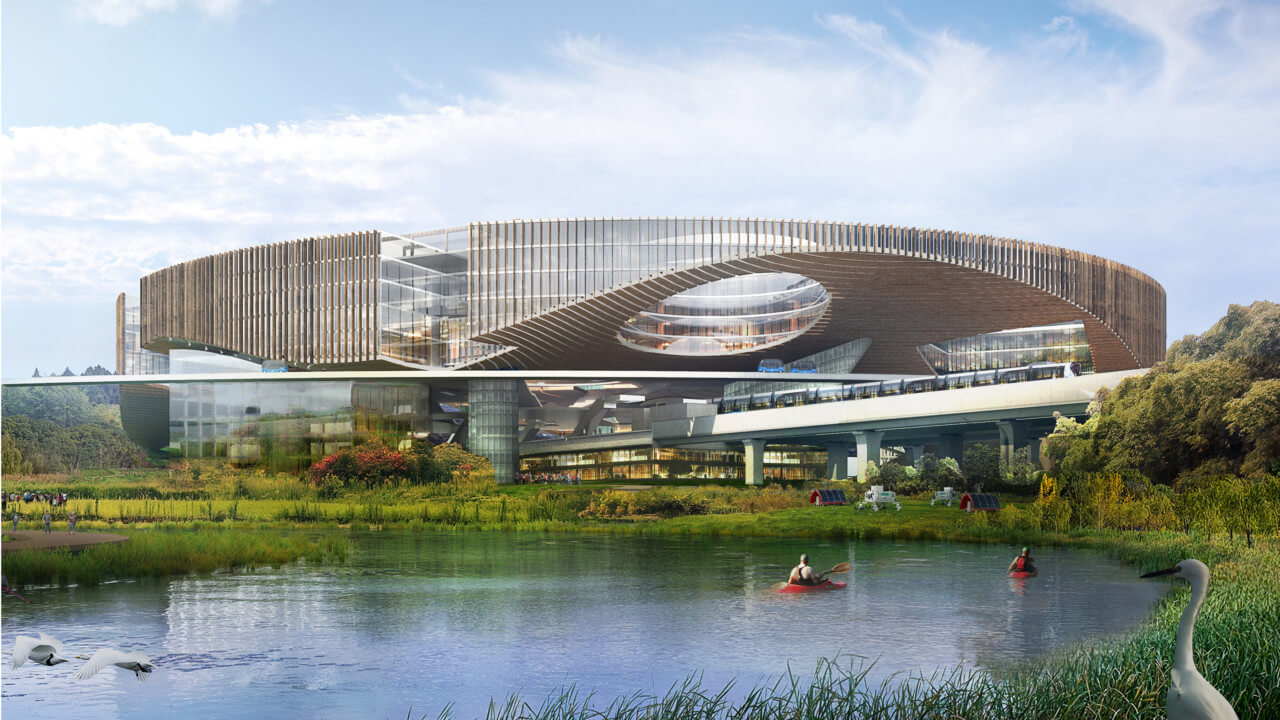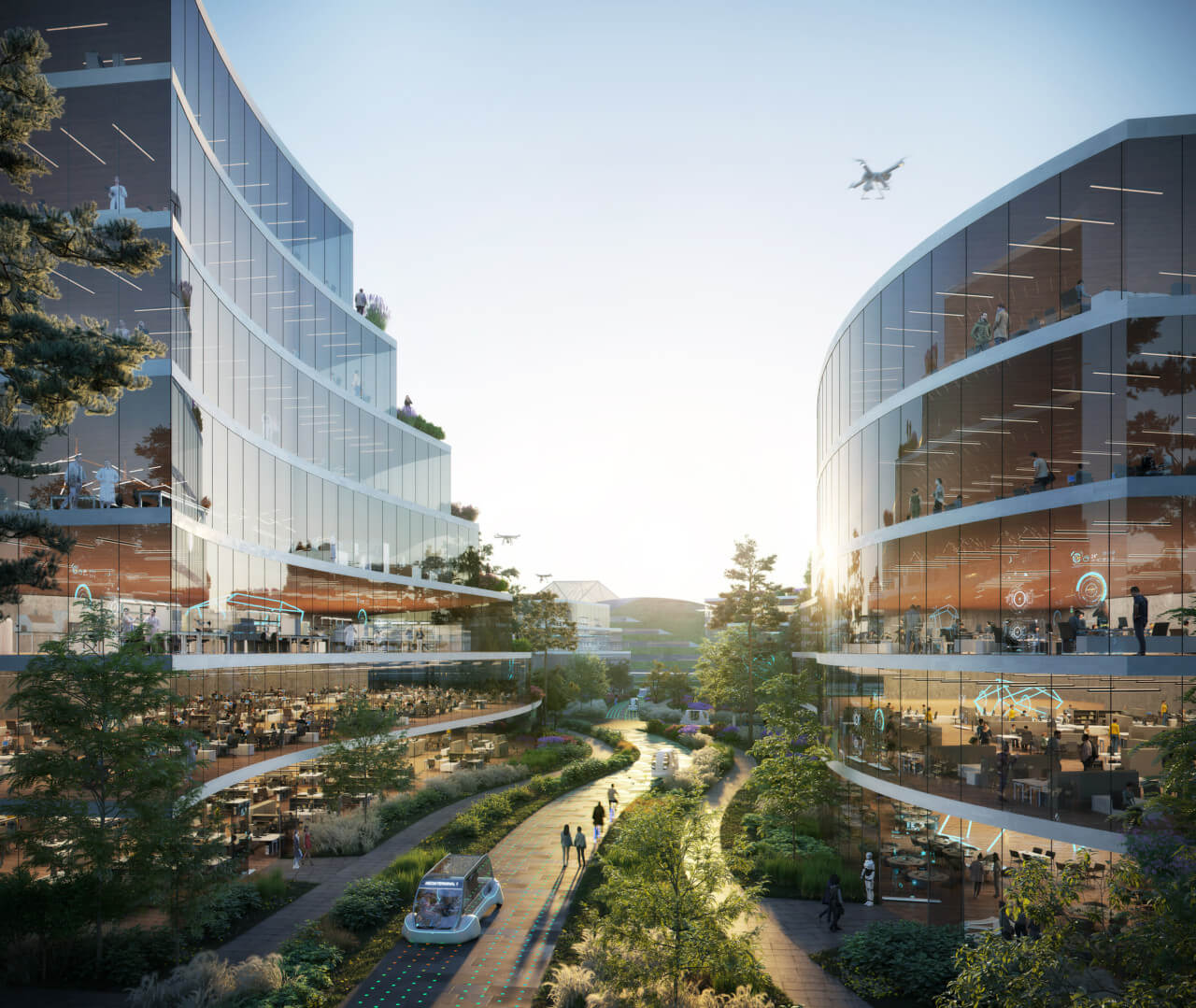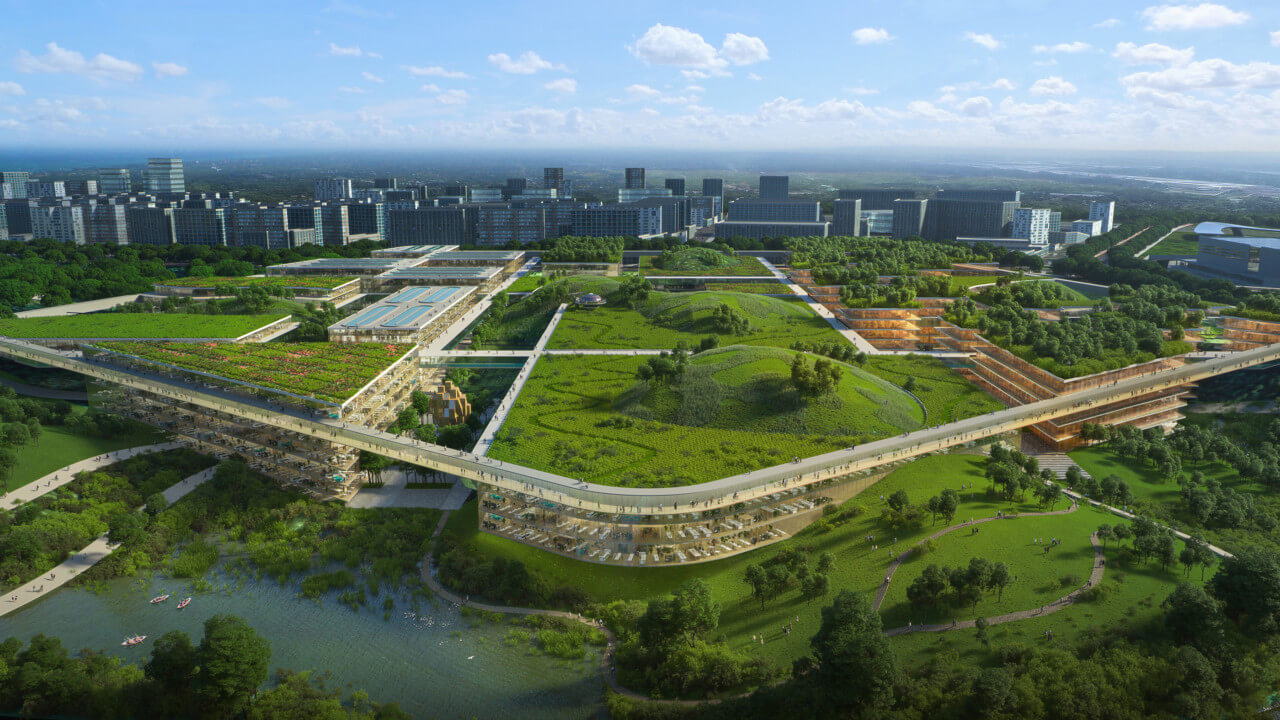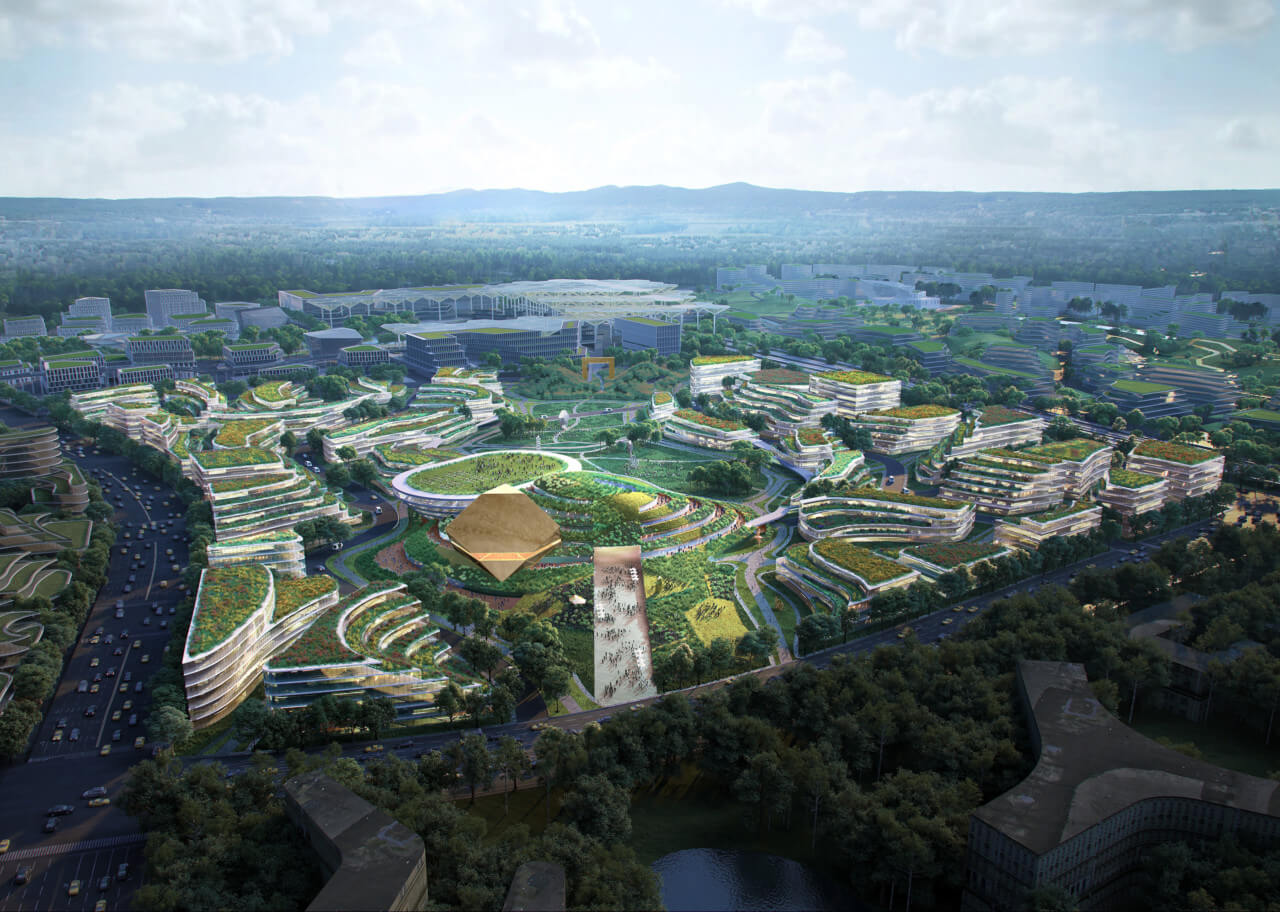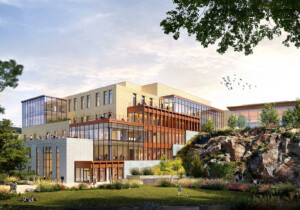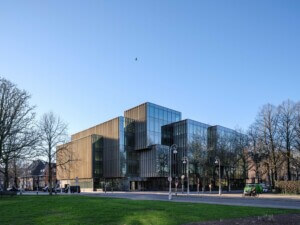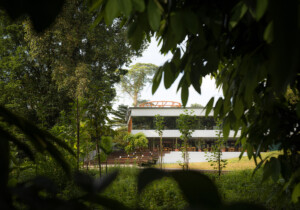Chengdu, the capital city of China’s Sichuan region, is continuing its expansive growth with a new science and technology-oriented “Future City” that OMA and GMP will master plan after winning an international design competition.
City is, perhaps, the right term to use, as the Chengdu Future Science and Technology City will span 1.77 square miles, six discreet, purpose-driven clusters, and bring offices, housing, laboratories, cultural and institutional space, and more to the area adjacent to the Tianfu International Airport.
The Tianfu International Airport, scheduled to open later this year, is Chengdu’s second and is expected to become the third-largest in China after the Beijing and Shanghai international airports (assuming travel returns to pre-pandemic levels at some point). The new car-free campus, intended to help spur Chengdu’s “innovation industry,” according to OMA’s press release, will thus be oriented towards connecting with the new airport as well as the extant Aviation College to the site’s northwest.
According to OMA, the innovation campus will follow the natural topography of the hilly site with a meandering valley anchoring the project and connecting the “International Education Park” to the new Futian train station.
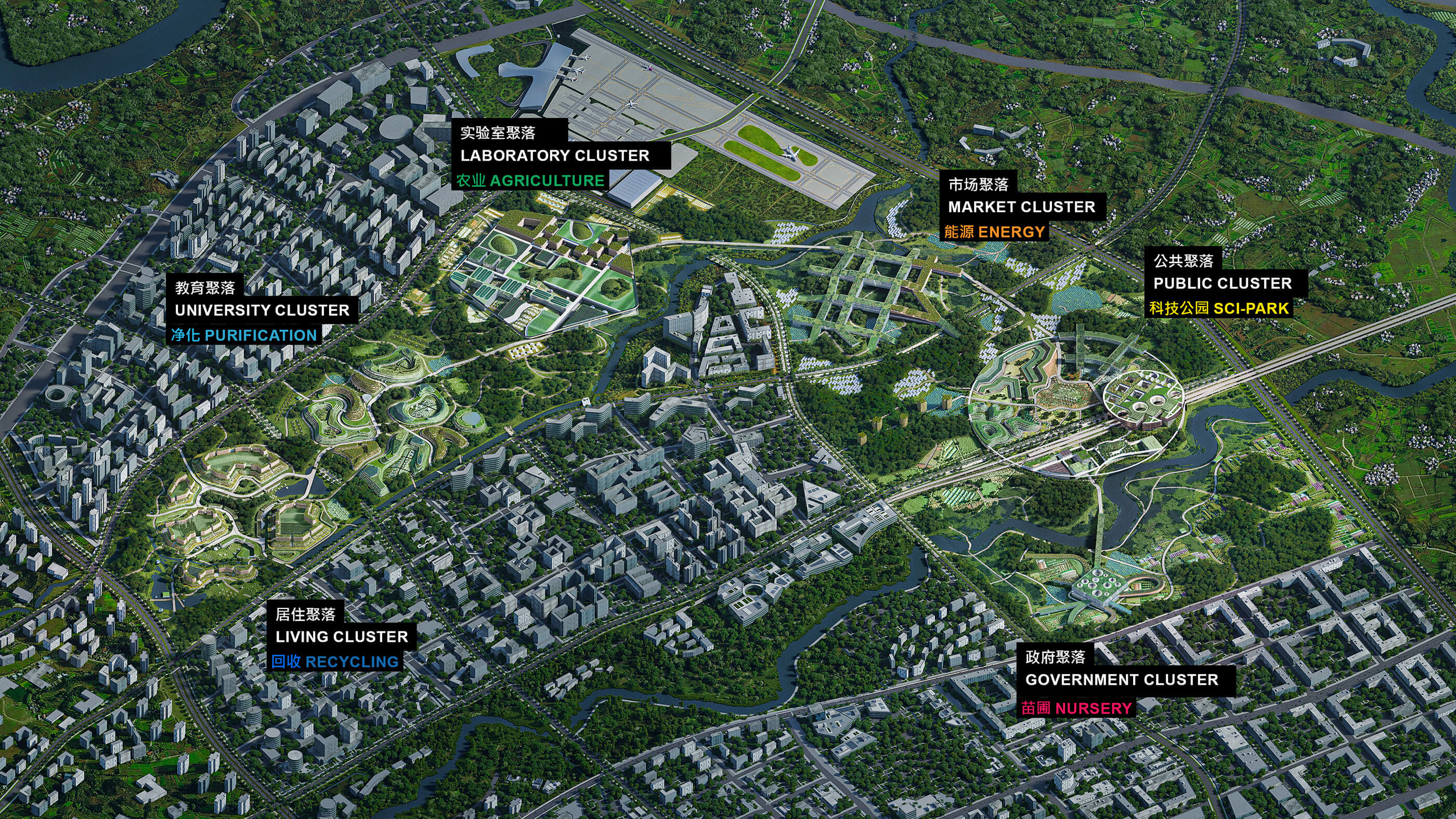
The six clusters will include: The education cluster on the site’s northwest section, complete with walls of towers, including dorms, and the aforementioned Aviation College; the laboratory cluster, built on a wetland, which will contain a pentagonal ecology center at the end fronting the airport and run the length of the education cluster; the living cluster, which will contain abundant residential housing; the market cluster, which will house an enormous grid-shaped complex with retail and public-facing programming at the ground level and offices and residences above; the public transportation-oriented public cluster, which will contain a new science and technology park built into the site’s existent water basin, and will feature a massive circular transportation hub to connect all of the campus’s modes of transportation, and the government cluster, which will sit atop a hill and feature five new office buildings surrounding a central bureaucratic block. According to OMA, wetland and forest incubators will also feature prominently into the government cluster.
OMA will begin the first phase by master planning the 4.9-million-square-foot International Educational Park to the west, which will, according to the firm, contain “dormitories, public program, national laboratories and innovation offices” for multiple universities. At the same time, GMP will begin work on the Transit Oriented Development project to the site’s southeast, which will facilitate high-density development around a public transportation hub—in this case, the new high-tech Futian Station.
On OMA’s end, the project team is being led by partner Chris van Duijn, associate Ravi Kamisetti, and project architect John Thurtle. No estimated budget or timeline for completion has been made public yet.






